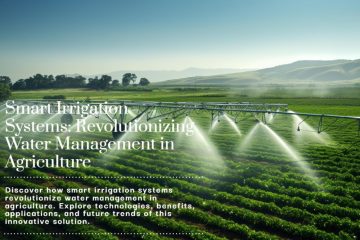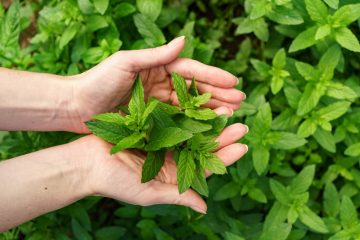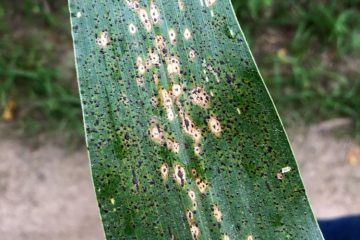
The Impact of Biotechnology on Sustainable Food Production
In recent years, the field of biotechnology has emerged as a game-changer in agriculture, revolutionizing the way we produce food and addressing the challenges of a growing global population. Through the integration of scientific advancements and genetic engineering techniques, biotechnology has opened up new possibilities for increasing crop yields, improving nutritional content, and promoting sustainable farming practices. This article delves into the fascinating world of biotechnology in agriculture, exploring its profound impact and the exciting potential it holds for the future.
1. Enhancing Crop Productivity
Biotechnology has provided innovative tools and techniques to optimize crop productivity, enabling farmers to cultivate more food on limited land while minimizing environmental impact. Here are some ways in which biotechnology is revolutionizing crop production:
- Genetically Modified Organisms (GMOs): Genetic modification involves introducing specific genes into a plant’s DNA to confer desirable traits, such as resistance to pests, diseases, or environmental stresses. This technology has resulted in the development of genetically modified crops that exhibit improved yield potential and resilience, ensuring a more abundant and secure food supply.
- Herbicide-Tolerant Crops: Biotechnology has facilitated the creation of herbicide-tolerant crops, which are genetically engineered to withstand the application of specific herbicides. This trait allows farmers to effectively control weeds without harming the crops, reducing the need for excessive herbicide use and promoting more sustainable weed management practices.
- Disease-Resistant Crops: Biotechnological advancements have enabled the development of disease-resistant crops by introducing genes that enhance the plant’s natural defenses against pathogens. This approach offers a promising solution to combat plant diseases, reducing the reliance on chemical pesticides and safeguarding crop yield and quality.
- Improved Nutritional Content: Biotechnology has the potential to enhance the nutritional value of crops, addressing malnutrition and dietary deficiencies on a global scale. By incorporating genes responsible for the synthesis of essential nutrients, such as vitamins or minerals, into crops, biotechnologists can create biofortified varieties that provide enhanced nutritional benefits to consumers.
2. Sustainable Farming Practices
Biotechnology plays a pivotal role in promoting sustainable farming practices, minimizing the environmental footprint of agricultural activities, and ensuring long-term food security. Here’s how biotechnology contributes to sustainability:
- Reduced Chemical Usage: The utilization of genetically modified crops with built-in pest and disease resistance traits can significantly reduce the reliance on chemical pesticides and insecticides. This reduction in chemical usage decreases the environmental impact, safeguards beneficial insects, and minimizes human exposure to potentially harmful substances.
- Conservation of Water Resources: Biotechnology offers solutions to develop drought-tolerant and water-efficient crops, enabling farmers to grow more food with limited water resources. By identifying and transferring genes associated with water-use efficiency, scientists can develop crops that thrive in arid and water-stressed regions, thus reducing water consumption in agriculture.
- Soil Health and Conservation: Biotechnology facilitates the development of crops with enhanced nutrient uptake efficiency and the ability to fix atmospheric nitrogen, reducing the need for synthetic fertilizers. This approach promotes soil health, prevents nutrient runoff, and helps in preserving the integrity of ecosystems surrounding agricultural lands.
- Preservation of Biodiversity: By reducing the reliance on chemical pesticides, biotechnology aids in the preservation of biodiversity by safeguarding beneficial insects, birds, and other wildlife that play a crucial role in maintaining ecological balance. This approach contributes to the conservation of natural habitats and fosters a more sustainable and resilient agricultural ecosystem.
3. Precision Agriculture and Genetic Engineering
Biotechnology has propelled agriculture into an era of precision, allowing farmers to optimize crop production through the application of genetic engineering techniques and data-driven approaches. Here’s how precision agriculture is being revolutionized by biotechnology:
- Molecular Breeding: Biotechnology accelerates the process of traditional plant breeding by identifying specific genes responsible for desirable traits and transferring them directly into target crops. This targeted approach eliminates the need for multiple generations of crossbreeding, enabling the development of improved crop varieties with desired characteristics more rapidly and efficiently.
- Marker-Assisted Selection: Through the use of molecular markers, biotechnology enables the identification and selection of plants with desired traits at an early stage. This technique allows breeders to screen a large number of plant samples more accurately, reducing the time and resources required for crop improvement programs.
- Gene Editing Techniques: Recent advancements in gene editing techniques, such as CRISPR-Cas9, have revolutionized genetic engineering in agriculture. These precise tools allow scientists to modify specific genes within an organism’s genome, offering tremendous potential for developing crops with enhanced traits, such as disease resistance or improved nutritional content.
- Remote Sensing and Data Analytics: Biotechnology integrates with remote sensing technologies and data analytics to provide farmers with real-time information about crop health, soil conditions, and weather patterns. This data-driven approach enables precise decision-making regarding the application of inputs, optimizing resource utilization, and enhancing overall farm management.
4. Addressing Global Challenges
The application of biotechnology in agriculture holds great promise for addressing pressing global challenges related to food security, climate change, and sustainable development. Here are some key areas where biotechnology offers potential solutions:
- Feeding a Growing Population: With the global population projected to reach 9.7 billion by 2050, biotechnology offers a viable path to increase food production and meet the growing demand. By developing high-yielding and climate-resilient crop varieties, biotechnologists can contribute significantly to global food security.
- Climate Resilience: Climate change poses significant threats to agricultural productivity. Biotechnology can help develop crops that are more resilient to extreme weather conditions, such as drought, heatwaves, or floods. By enhancing the adaptability of crops, biotechnology aids in maintaining stable food production in the face of a changing climate.
- Reducing Food Loss and Waste: Biotechnology can contribute to reducing post-harvest losses by developing crops with extended shelf life, enhanced disease resistance, and improved nutritional content. By minimizing food loss and waste, biotechnology helps maximize the efficiency of food production and reduces the environmental impact associated with food disposal.
- Enhancing Nutritional Security: Biotechnological approaches, such as biofortification, offer the potential to address global malnutrition and dietary deficiencies. By developing nutrient-rich crops, biotechnology can improve the availability and accessibility of essential vitamins and minerals, particularly in regions where access to diverse and nutritious diets is limited.
Conclusion
Biotechnology is revolutionizing agriculture and transforming the way we produce food. Through innovative tools and genetic engineering techniques, it enables the development of high-yielding, climate-resilient, and nutritionally enhanced crop varieties. Biotechnology also promotes sustainable farming practices by reducing chemical usage, conserving water resources, and preserving biodiversity. With precision agriculture and data-driven approaches, farmers can optimize resource utilization and make informed decisions for improved crop management. Furthermore, biotechnology holds great promise in addressing global challenges, such as food security, climate change, and reducing food waste. As we continue to unlock the potential of biotechnology in agriculture, it is crucial to balance technological advancements with ethical considerations, safety regulations, and public awareness to ensure its responsible and sustainable implementation for the benefit of both current and future generations.










